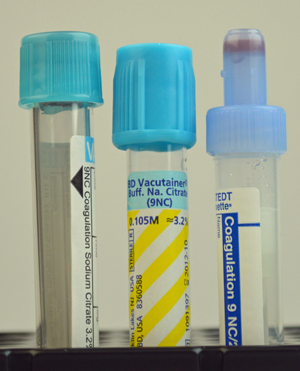Studies Find aPTTs Less Stable Than Previously Thought
Transit time critical for accurate aPTT results
by Dennis Ernst • September 07, 2020

Recently published results from two studies shed new light on the stability of activated partial thromboplastin times (aPTT) suggesting samples must be tested much sooner than what is currently the practice. The latest issue of Thrombosis Research includes a study in which multiple coagulation assays were collected by venipuncture and tested after delays of 2, 4, 6, 12, and 24 hours. Assays included prothrombin time (PT), international normalized ratio (INR), activated partial thromboplastin time (aPTT), fibrinogen concentration, antithrombin activity, D-dimer concentration and thrombin time.
Significant differences and large variations were observed between the various time intervals in the study. The authors found PT and INR results remain stable for up to 24 hours. Fibrinogen, antithrombin, D-dimer and thrombin demonstrated stability up to 4 hours. The current CLSI standards limits the time from collection in which aPTTs must be tested to four hours.
An editorial in the same issue written independent of the study came to the same conclusion.
These articles pose significant challenges to laboratories drawing from heparinized patients at long-term care facilities, at home, or any other location remote from the testing facility. Excessive transit times can lead to falsely prolonged results and inappropriate adjustments to the patient's dosage that could be life-threatening.
Related Posts and Information
overall rating: my rating: log in to rate
aPTT blood thinner coagulation preanalytical YouTube
